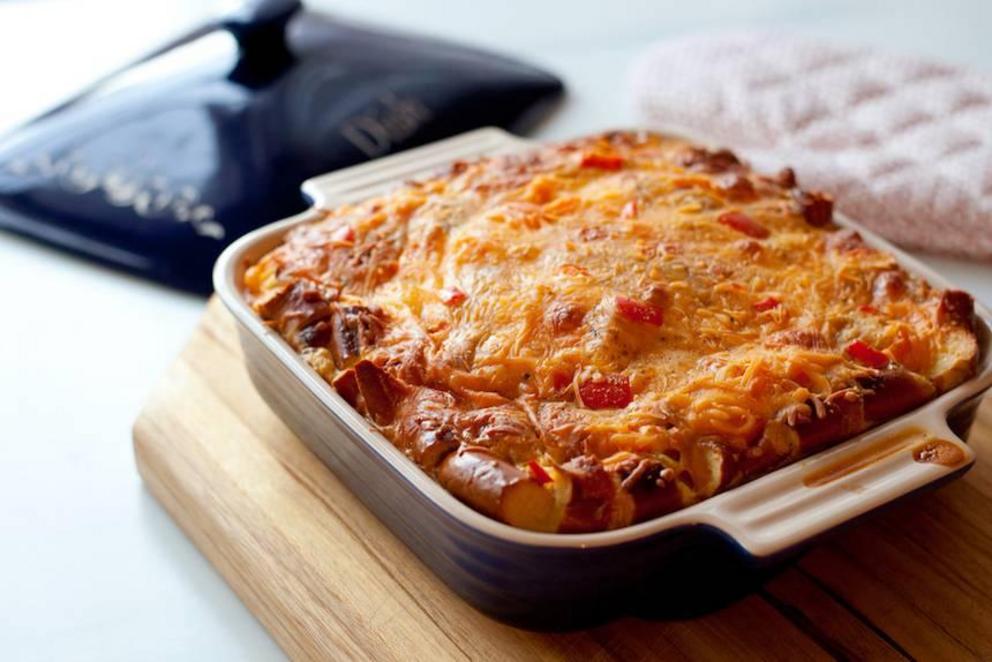Home-cooked food can now be sold legally in California
Until recently, donating food to a fundraiser or hosting a pop-up dinner was considered a criminal activity.
In most American states, if you prepare food at home for sale, you're breaking the law. Food safety regulations prevent home cooks from using their own kitchens to sell food, stating that it can only happen in commercial-grade kitchens with features such as triple sinks for washing, rinsing, and sterilizing, and separate hand washing stations, inspected on a regular basis by the local health department.
These regulations are frustrating for many people, particularly women who stay at home, first-generation immigrants whose employment options are limited, and others who would like to supplement their income. Many do it anyways, which is why there's a whole world of hidden food entrepreneurs selling home-cooked food and hoping not to get a cease-and-desist warning from the local health department. One estimate suggests that, in California, there are between 50,000 and 100,000 home cooks selling food illegally. The industry is thriving because people want it, and that's no surprise; given the choice between takeout (again!) or a home-cooked meal, who wouldn't choose the latter on a regular basis?
A new law may change all of this, at least in California. Called the Homemade Food Operations Act (AB 626), it passed unanimously through the legislature and was just signed into law earlier this month by governor Jerry Brown. The Act allows home cooks to run food businesses (or 'Microenterprise Home Kitchen Operations,' as they're formally called) out of their homes, as long as they follow a few rules. These include:
- An annual sales limit of $50,000
- No more than 60 individual meals prepared weekly
- Food prepared, cooked, and served on the same day
- Direct sales between home cook and customer (no middleman or third-party platform)
- Operator must obtain food manager training and certification
- Operator must pay for annual inspection ($300)
The total cost of running a Microenterprise Home Kitchen Operation is estimated to be $800 per year, which includes training and permitting, as well as liability insurance.
I think this is a wonderful move, as I've long been a supporter of allowing legal sales of home-cooked food. While the concerns about food safety deserve serious consideration, and it's true that you cannot monitor a private kitchen as closely as a commercial one, I think we put too much trust in commercial food operations, assuming they're safer than they really are. Think about it: If something goes wrong in a commercial facility, far more people are likely to get sick before anyone realizes a product is contaminated. (Consider the 132,000 pounds of ground beef being recalled right now by Cargill. The USDA has officially said the health risk is "high," as already one person has died and 17 are ill. Like I said, you can't trust big industries to keep your food safe.)
Matt Jorgensen, founder of an Oakland-based startup called Josephine that linked home cooks to hungry customers before it shut down in 2018, was instrumental in getting the new law passed. He thinks the level of regulation around kitchens is absurd, telling The New Food Economy:
"'The irony is that we all eat out of our home kitchens all the time, and there is no health crisis.' He points out that the top sources of food borne illnesses are contaminated third-party products like packaged spinach and improper food handling, which can lead to cross contamination -- raw chicken coming in contact with salad greens, for instance... [but] 'that is an issue of food safety training, rather than the facility itself.'"
I think people should use their own common sense when it comes to making food purchases. If you don't like the idea of buying food from someone's private kitchen, then don't do it. But if you're willing to take the risk -- much as you would if you were invited over to someone's house for dinner or buy a cup of juice from a child's lemonade stand -- you're probably going to be fine.
Personally, I feel like I'm taking a risk whenever I order food from a restaurant. Perhaps that's because I used to work in the industry and know how grim things can get in the back and in the dreadful walkout fridge I used to have to clean. Food is a messy business at the best of times, and the more invested the individual cook is in the final product, and the smaller the scale of production, the more confident I feel about a product's safety.
Just because the Homemade Food Operations Act has been signed into law does not make it automatic across the state. Counties and local health departments can still choose whether or not to adopt it, which is why people like Jorgensen are calling on Californians to speak out in support.
I hope this becomes a model for other states and provinces. Let people choose for themselves what risks they want to take, all while offering opportunities to earn income from home, to localize food production, and to make the food industry more accessible to people who are good at cooking but don't have the capital (or the desire) to scale it up to full restaurant level.

